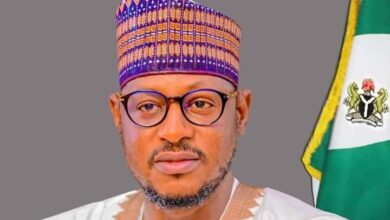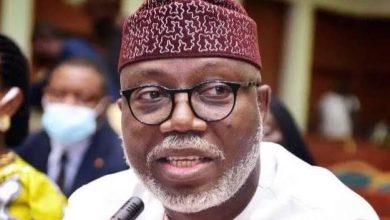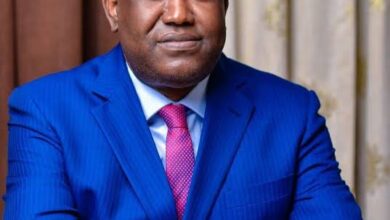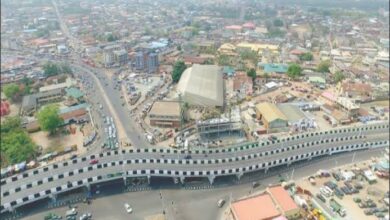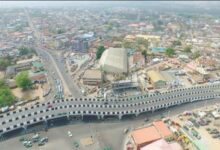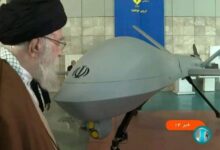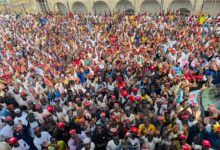Meet Nigeria’s royal ex-uniformed men

For many years, the trend of ex-servicemen and other uniformed professionals – mostly senior officers – have transited to lead their people in traditional roles. This has given the institution a unique character.
They are worlds apart. One is regimented, taking orders and less diplomatic, the other is of persuasion, compassion and benevolence. The military and traditional institutions operate at variance, yet there are many crossovers to the service of the community by servicemen. Many uniformed personnel have changed garb in order to take up new challenges in their communities. Some say the military is a disciplined institution and prepares one for leadership roles in all facets. In many countries, former servicemen became presidents and have done well.
A former British Prime Minister from 1940 to 1945 and 1951 to 1955, Winston Churchill was a military officer who trained at the Royal Military Academy. Also, the first president of the United States of America, George Washington, was the Commander-in-Chief during the American Revolutionary War. The list goes on.
In some climes, it is those in traditional authority that move to serve in the military. In Britain for example, after a degree from Trinity College, Cambridge, Prince Charles served in the Royal Navy and Air Force. Both his sons, Princes William and Harry, have served in the British armed forces.
In Nigeria, many ex-servicemen have been called upon to lead their communities in traditional roles, essentially making them commanders-in-chief of sorts to their subjects. The District Head of Gagi in Sokoto State, Alhaji Sani Umar Jabbi, told Daily Trust that the trend of having traditional leaders with military background has brought tremendous progress into the system.
Jabbi said it has strengthened capacities to deal effectively with issues concerning health, education and other social services. He added that it has also assisted in the empowerment of traditional leaders to relegate political sentiments and safeguard the integrity of their cultural norms and values. He noted that it has facilitated the introduction of new ideas and ideologies among the traditional leaders for the benefit of their subjects.
The move from a uniformed profession by prominent officers to a traditional throne or title has certainly brought much-required gravitas to the traditional institution.
Sultan of Sokoto, Alhaji Muhammad Sa’ad Abubakar III
The 20th Sultan of Sokoto, Muhammad Sa’ad Abubakar III, retired from the Nigerian Army as a Brigadier-General in 2006, and on November 2, 2006 ascended the throne. Born on August 24, 1956 in Sokoto when his father Abubakar Sadiq III was the Sultan, he had his elementary and secondary education at Sultan’s Ward Primary School, Sokoto and Barewa College, Zaria respectively.
The Sultan commenced his military training in June 1975 when he enlisted as a member of Regular Course 18 of the Nigerian Defence Academy, Kaduna, and was commissioned into the Nigerian Army in 1977.
The traditional leader had served under 245 Recce Battalion deployed for the then Organisation of African Unity (OAU) Peacekeeping Force in Chad Republic from 1981 to 1982.
The Sultan is the President-General of the Nigerian Supreme Council for Islamic Affairs, (NSCIA) and was ECOWAS Military Liaison Officer (1995-1999) and Commanding Officer, 231 Tank Battalion (ECOMOG operations) in war-torn Freetown, Sierra Leone from 1999-2000. From 2003-2006, he was Defence Attaché to Pakistan and concurrently accredited to Iran, Iraq, Saudi Arabia and Afghanistan.
Emir of Zuru, Alhaji Mohammed Sani Sami
The Emir of Zuru, Alhaji Mohammed Sani Sami, is one of the few retired military generals who are today serving in their respective domains as traditional rulers. He was born on October 24, 1943. He became emir in 1995. He joined the Nigeria Military Training College as officer cadet in 1962 and later posted to MONS Officer Cadet Course Aldershot, England. He is also a graduate of the Armed Forces Command and Staff College, Jaji after which he bagged a higher diploma in Defence Management from the Postgraduate Naval College, Monterey, USA.
Before he retired as a Major-General, the traditional ruler was the General Officer Commanding (GOC) 82 Div Enugu and 1 Div Kaduna. Recounting how he joined the army, the emir told Daily Trust that he grew up in an environment where many of his brothers are soldiers. He said he was in secondary school when the then premier of Northern Nigeria came to campaign to those in final year to join the army. “The Minister of Defence also talked to us, showing us Gowon, well-dressed in military uniform. That how we were attracted to join the army,” he said.
Emir of Lere, Alhaji Garba Mohammed
The Emir of Lere in Kaduna State, Alhaji Garba Mohammed, who rose to the rank of a Brigadier-General, was military governor of Sokoto State from August 1985 to September 1986.
Mohammed is the 13th traditional head of Lere, and he succeeded his late brother, Alhaji Umaru Muhammad, who died in 2011.
Born on April 15, 1944, Mohammed attended Lere and Soba Primary Schools between 1951 and 1958 before proceeding to Barewa College Zaria from 1959 to 1963. He was at the Ahmadu Bello University between 1965 and 1966 before proceeding to the California Polytechnic in the United States.
Ponzhi Tarok, Domkat Bali
Lieutenant-General Domkat Yah Bali (rtd), the Ponzhi Tarok, has kept a low profile outside his domain in the past four years. The paramount ruler was former Minister of Defence and Chief of Defence Staff. The retiree was a member of the Supreme Military Council between 1984 and 1985 and the Armed Forces Ruling Council from 1985 to 1990.
Bali joined the Army in 1961 and is a graduate of the Royal Military Academy Sandhurst.
In 1973, he was posted to Akure as the Commander of the 9th Infantry Brigade and was Adjutant General in 1975. Bali later became the GOC of the First Infantry Division, Kaduna, in 1978. He was selected as Ponzhi Tarok in 2010 after the stool was vacant for over a year following the death of Edward Zhattau.
The 77-year-old monarch was born in Langtang to the family of late Hassan Bali Tabut and Yenkat Bali. He once said there were too many restrictions in a traditional setting which made him at first reluctant to accept the position.
Oba of Lagos, Chief Rilwan Akiolu
The Oba of Lagos, Rilwan Akiolu, was an Assistant Inspector-General of Police (AIG) from 1999 until he retired in 2002. Born on October 29, 1943, he studied Law at the University of Lagos and was a member of the Nigerian Institute of Management.
In May 23, 2003, Akiolu was selected to succeed the late Oba Adeyinka Oyekan, and later confirmed by the Lagos State government as the 21st Oba of Lagos, capped the next day and crowned on August 9, 2003. He joined the Nigeria Police in 1970 and became an Assistant Inspector-General in 1999 until retirement in 2002.
Gbong Gwom Jos, Jacob Gyang Buba
The paramount ruler of the Berom people, the Gbong Gwom Jos, Jacob Gyang Buba is also the Chairman, Plateau State Council of Chiefs and Emirs. He is the 5th head of the Berom ethnic group. The former Comptroller-General of Nigerian Customs Service was on October 10, 1951 in Madu village of Du district, Jos South Local Government Area.
Buba worked as a clerk in the Federal Pay Office, Jos, between 1972 and 1974. He proceeded to the institute of Administration, Ahmadu Bello University, Zaria where he graduated with a Diploma in Banking and began a career with the Customs in 1975. He rose through the ranks and between 1993 and 1996 was Deputy Comptroller, headquarters, Abuja. He was appointed Comptroller-General in 2004 and retired in May 2008.
Ohimege-Igu of Koton-Karfe, Alhaji Abdulrazaq Gambo Isakoto
For the Ohimege-Igu of Koton-Karfe, in Kogi State, His Royal Majesty Alhaji Abdulrazaq Gambo Isakoto, his enlistment into the Nigeria Police Force in 1994 before he was called upon in 2012 to ascend the throne of his forefathers was providence. It honed his leadership skills for the daunting tasks of administering the affairs of his chiefdom.
He said he had no regrets for the over 18 years he spent in the police force where rose to a Chief Superintendent of Police. Born on March 27, 1965 in Kaduna State to the family of late Alhaji Mohammed Sani Isakoto and Hajiya Hajara Isakoto, the Ohimege had his early education at Koton-Karfe and subsequently Crowther Memorial College, Lokoja between 1976 and 1982.
He attended the Ahmadu Bello University (ABU), Zaria where he obtained Diploma in Law in 1987 before proceeding to the University of Jos where he obtained a Bachelors of Arts degree in Theatre Arts.
The traditional ruler joined the Nigeria Police Force in 1994 and was commissioned as an Assistant Superintended of Police. He was appointed and installed the Ohimege-Igu on October 12, 2012. He told Daily Trust that he is glad he served in all the departments of the police force. “I see the police as an institution that serves as a training ground for leadership. As an officer, the everyday experience is what I have brought to bear in running the chiefdom.”
Kpop Gwong of Fadan Kagoma, Paul Zakka Wyoms
The Kpop Gwong of Fadan Kagoma in Kaduna State, Paul Zakka Wyoms, was a retired Colonel before he became the traditional ruler of the chiefdom on December 20, 2000 and was crowned in March 2001.
The Kagoma chiefdom was created on October 24, 1994 by the then Military Administrator of the state, Colonel Lawal Jafaru Isa. The first Kpop Gwong was Malam Aruwa Jatau, the then District Head of Kagoma.
Amayanabo of Twon-Brass, Alfred Diete-Spiff
This traditional ruler of the Ijaws was appointed the first military governor of old Rivers State in May 1967 when former Head of State, General Yakubu Gowon, created states from the regions. He served till July 1975 and was a member of the Supreme Military Council.
Diete-Spiff was born on July 30, 1942 and attended St. Joseph’s College, Western Cameroon and Britannia Royal Naval College, Dartmouth, England. He joined the Nigerian Navy and was commissioned ship diving officer in 1964. He became a Naval Lieutenant Commander at age of 24. He was crowned the Amayanabo in 1996.
Source: Daily Trust


